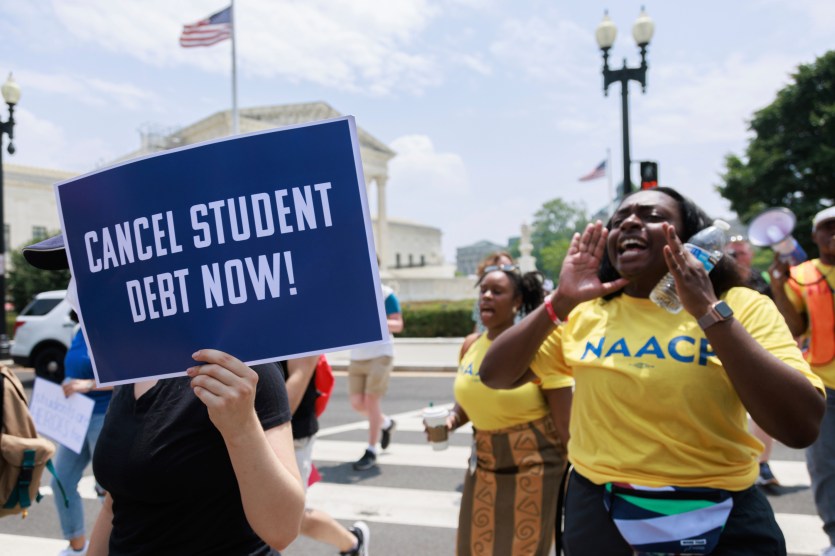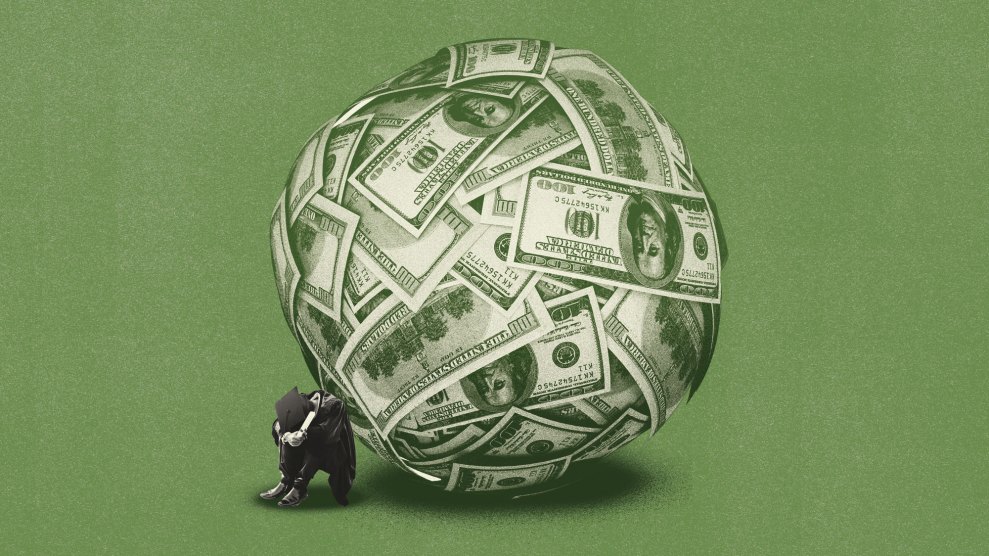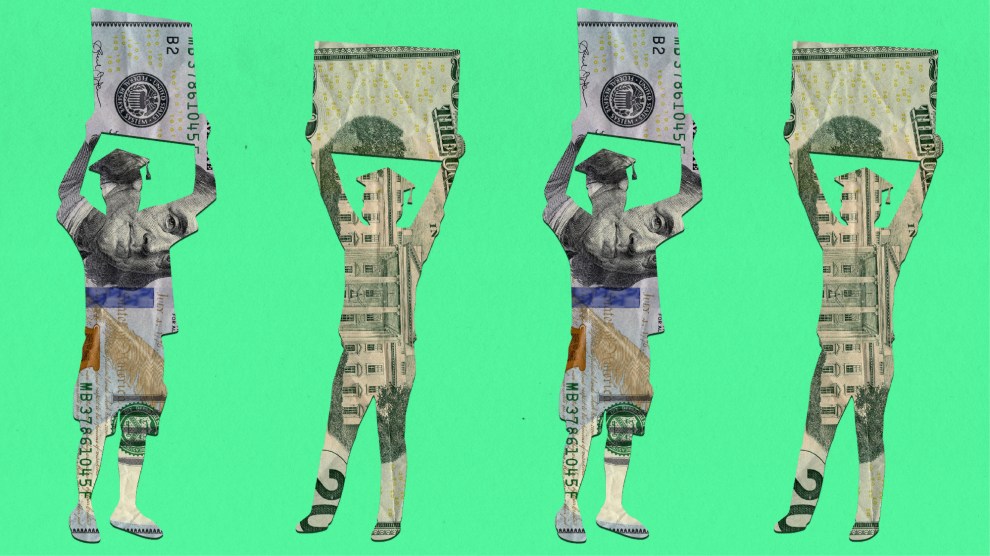
Bryan Olin Dozier/NurPhoto/AP
After more than three years, millions of Americans will be getting bills this month from the Department of Education as federal student loan repayments restart. Repayments were paused in March 2020 as a response to the financial hardship many faced in the onset of the Covid pandemic. But after Congress passed a law in June preventing further extensions of the Covid pause, interest began accruing again in September, and debtors’ bills are due starting Sunday.
In anticipation of the restart, the Biden administration on Friday announced the next steps in its plan to offer student loan relief through the Higher Education Act (HEA), the law that governs federal student loans. As my colleague Hannah Levintova has reported, “Some of the earliest champions for cancellation, including the Debt Collective and Sen. Elizabeth Warren (D-Mass.), have made the case that the HEA presents the best legal option for canceling debt. They’ve maintained that the portion of the law called ‘compromise and settlement authority’ gives the Education Department carte blanche to tweak or even throw out its claims against borrowers.”
The Friday announcement revealed that the administration will be focusing their efforts to relieve student debt on five categories of borrowers: those whose balance is greater than their original loan, those who started repayment decades ago, those who took out loans for programs that did not provide “sufficient financial value,” those who qualify for relief under existing programs but have not applied, and those who have experienced financial hardship but do not qualify for existing programs.
Inside Higher Ed reports that this process for relieving debt is likely to take at least a year. Biden’s original plan for student debt cancellation, which would have eliminated loans for 20 million student debtors, was thrown out by the Supreme Court in June.
In the meantime, more than 40 million Americans owe a total of nearly $1.8 trillion, and many are grappling this month with how to budget for repayments. As Justice Sonia Sotomayor said during arguments about Biden’s original student debt cancellation plan, “many [borrowers] don’t have assets sufficient to bail them out after the pandemic. They don’t have friends or families or others who can help them make these payments. The evidence is clear that many of them will have to default.”
















